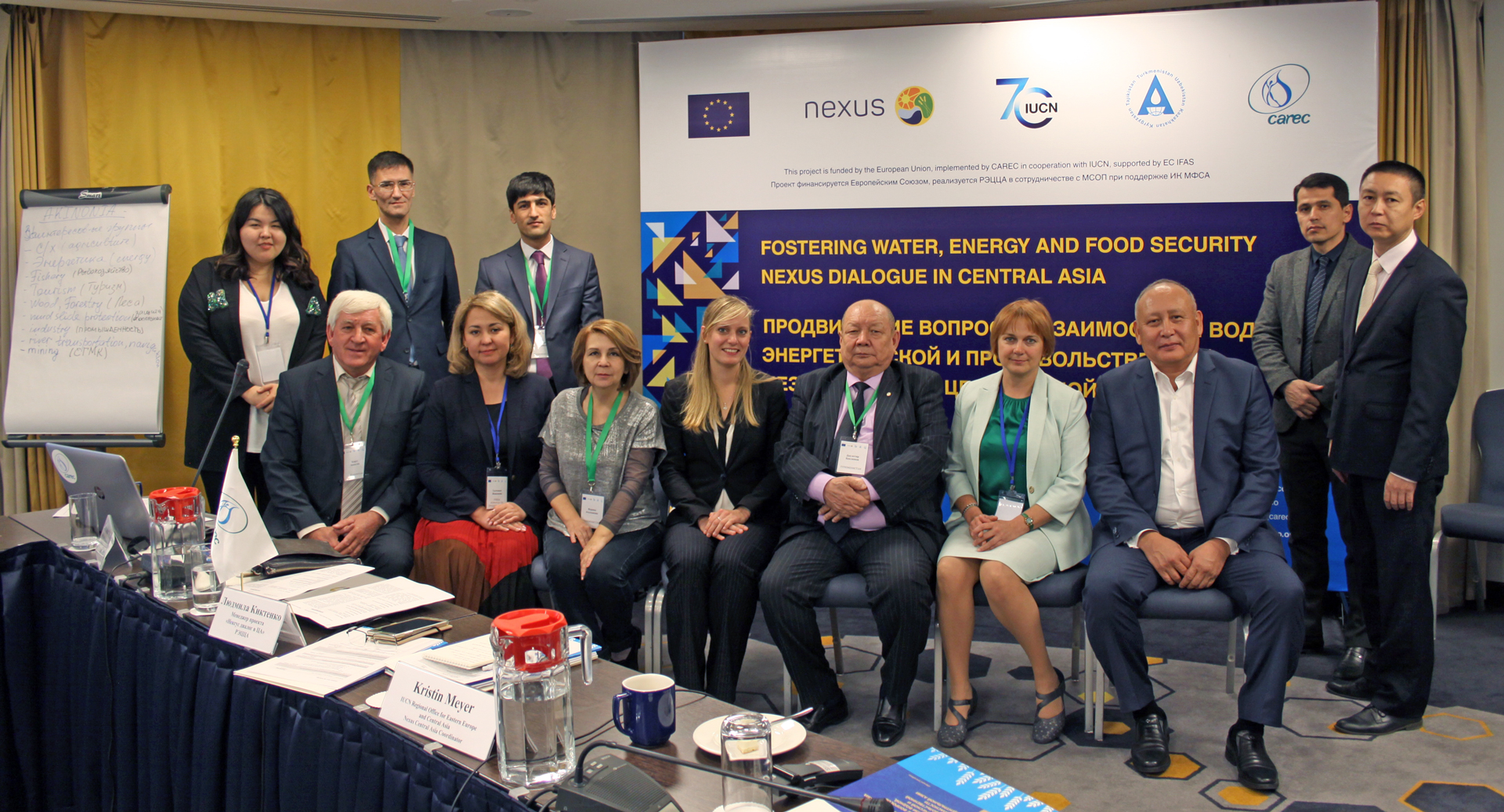
ASTANA – On 8 October 2018, the first training workshop dedicated to instruments supporting multi-sectoral dialogue and planning took place. Representatives of the Executive Committee of International Fund for Saving the Aral Sea, basin organizations, national ministries and agencies responsible for water, land management, energy and economic development, and also experts from all five Central Asian countries participated in the event.
The meeting was organized within the "Central Asia Nexus Dialogue Project: Fostering Water, Energy and Food Security Nexus Dialogue and Multi-Sector Investment". The project is funded by the European Union and implemented by the Regional Environmental Centre of Central Asia in partnership with the International Union for Conservation of Nature (IUCN) and with the support of the Executive Committee of International Fund for Saving the Aral Sea. Phase I will last until December 2019 (total budget: €1.52 million; EU contribution: €1.3 million).
The training workshop introduced participants to the concept of benefit sharing. Where the interests of water, energy and food are balanced, it is possible to achieve higher returns on investments. Multi-sectoral dialogue and negotiation are key to maximizing benefits for all stakeholders and sectors. IUCN conducting this part of the training that empowered participants, through practical examples, to assess the impacts of investments on various sectors and supported capacity building on cooperative decision-making.
Participants were also introduced to the three other practical tools. The first instrument is hydro-economic computer model WHAT-IF (Water, Hyrdo-energy and Argi-food Tool for Investment and Financing ) - a decision-support tool for the economic assessment of policy options and prioritisation of investment projects. WHAT-IF model is developed by the Organization for Economic Cooperation and Development and has been applied in diverse countries, including Kazakhstan. The instrument was applied in the Shardara basin and results of its application confirmed that investment decisions demand careful study and modelling in order to identify the most relevant options contributing the most to the economic development and greater levels of water, food and energy security.
Second and third instruments are the Investor’s Guide and the Knowledge Platform, which are developed for Central Asian professional developers of initiatives and programs by the European Union project WECOOP 2. These instruments include general guidelines and best practices for preparation of bankability project proposals, requirements and conditions of International Financial Institutions and other relevant useful information.
“The most important outcome of today’s training workshop is that we have seen existing tools which support multisectoral dialogues and planning to achieve win-win outcomes and attract investments", stated Karl Anzelm, the Head of the South Kazakhstan Hydrogeological and Land Reclamation Expedition of the Committee on Water Resources under the Ministry of Agriculture in the Republic of Kazakhstan. The next needed steps – to test these tools through development of practical investment projects under EU Nexus CA Dialogue Project.
“Central Asia Nexus Dialogue project: Fostering Water, Energy and Food Security Nexus Dialogue and Multi-Sector Investment” or Nexus project is implemented by CAREC in cooperation with the International Union for Conservation of Nature with the financial support of the European Union. The overall objective of the project is to create a multi-sectoral enabling environment to facilitate sustainable and climate-resilient investments for increased water, energy, food security and ecosystems in Central Asia. The project is implemented in five countries of Central Asia (Kazakhstan, Kyrgyzstan, Tajikistan, Turkmenistan and Uzbekistan) during the period 2016-2019.

